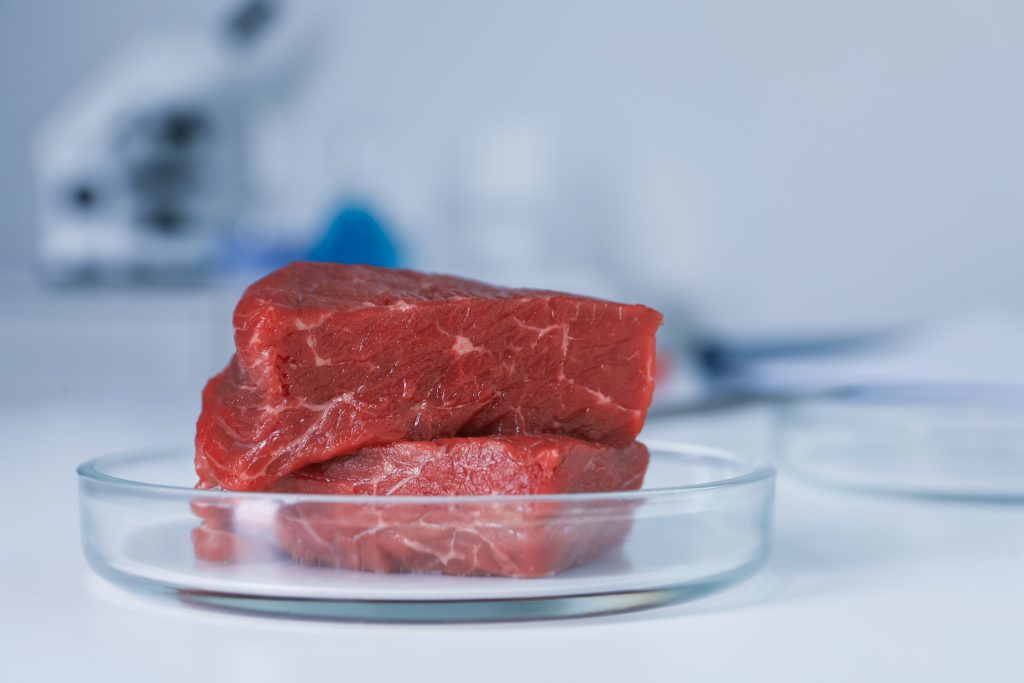Cellular Agriculture for Sustainable and Secure Food Supply
In recent years, the world has been experiencing a revolutionary transformation in food production. In fact, traditional agriculture is facing numerous challenges like limited resources, climate change and also ethical concerns. As a response, an innovation known as cellular agriculture (CA) has emerged, promising to reshape the future of food production. Hence, this article explores the concept of CA, its potential to disrupt traditional agriculture, and its impact on environmental conservation. Lastly, there are some companies highlighted that are leading the charge in this exciting field. Introduction Innovative cellular agriculture is a method to produce animal products including for instance dairy, meat, as well as eggs by using cellular biology. In brief, in CA scientists derive stems cells from animals and cultivate them in a safe lab environment to produce pure food products. Despite their laboratory origin, these foods are genetically identical to conventional animal-based products. However, while their traditional counterparts involve animal slaughter, cellular agriculture foods do not rely on animal farming. Relevance of Cellular Agriculture Given a growing world population and the increasing demand for food, CA has indeed gained in importance. As our world’s population will certainly reach 9.7 billion in 2050, traditional animal agriculture will face difficulties to meet the escalating demand for food while not increasing its negative environmental impact. The global food production must increase by 70% to meet the food demand (Food and Agriculture Organization). CA has the potential to reduce greenhouse gas emissions by 78 to 96%, land use by 95%, and water use by 82 to 96% (Tuomisto and de Mattos). Being a reasonable solution to the growing food demand, the global CA market size reaches $515.24 billion by 2030. Benefits of Cellular Agriculture A rise of cellular agriculture brings numerous benefits that address some of the most pressing global challenges we face today. Challenges Associated with Cellular Agriculture CA needs to overcome some challenges first to embrace all its benefits. Ongoing research and technological advancements are continuously addressing these challenges. As the industry evolves, production costs are expected to decrease, and public acceptance may grow as consumers become more aware of the environmental and ethical advantages of CA. Main Startups in the Field The cellular agriculture industry is rapidly growing, with numerous start-ups leading the change. Notable companies like UPSIDE Foods, JUST Inc., and Aleph Farms are at the forefront of developing cell-based meat and other animal products. Research institutions and academic centers worldwide are actively involved in advancing the science and technology of cellular agriculture. Explore all Key Player: Example Case Study Founded in early 2016, Cell Ag Ltd stands as the first UK startup in the cultured protein sector. With funding from InnovateUK in 2018, the company developed a proof-of -concept bioreactor system. Showcased at the Nemo Science Museum in Amsterdam (2019), it represents the world’s first publicly demonstrated automated cultured meat system. Their technology shows a 300 times smaller footprint and a remarkable 70% reduction in operational costs. As part of their vision, they aspire to become the leading global technology solutions provider for the cultured meat industry. Takeaway Lastly, cellular agriculture presents a revolutionary paradigm for the future of food production, offering a sustainable, humane, and environmentally responsible solution. As technology progresses and production scales up, cellular agriculture has the potential to transform the food industry and contribute to a more sustainable and resilient global food system. As we continue to support and invest in companies leading this cause, we are moving closer to a world where delicious and nutritious food is produced without harming animals or our planet. Explore related topics Sources:
Cellular Agriculture for Sustainable and Secure Food Supply Read More »


